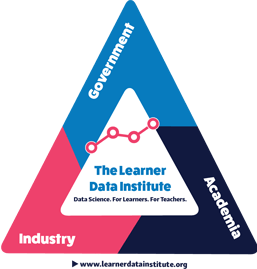One out of six adults in the United States do not comprehend text well enough to get a decent job. This population may know the words in texts but they don’t know how to get at the deeper meaning from print. Imagine what they go through when they need to sign a rental agreement, purchase a vehicle, apply for a job, follow a recipe, or file their taxes. They can understand spoken conversation but the printed text is a challenge.
Researchers at the University of Memphis in the Institute for Intelligent Systems have developed AutoTutor-ARC (Adult Reading Comprehension) to help the struggling adult readers comprehend text at deeper levels (sites.autotutor.org). There are 30 lessons that target different levels of comprehension that range from words and sentences to different types of passages (stories, persuasion, informational documents) and digital media (forms, social media, email). The web site has two conversational agents (avatars, namely a tutor and a peer student) who hold a spoken conversation with the adult learner as they read words, sentences, texts, and documents. The agents periodically ask the adults questions during the conversation to assess how well the adults are comprehending the text. These conversation-based assessments track the accuracy and response time in answering the questions. All of these performance data are stored by the computer in the cloud. This is a very important step. Human instructors in literacy centers could ask such questions, but the accuracy and time of the adults answering the questions is never measured and stored in a database. However, AutoTutor stores such data and discovers particular characteristics of learners that can potentially predict promising personalized learning activities.
Data on AutoTutor-ARC has been collected on adult learners in different cities in the United States and other countries. The data stored on answers to conversation-based questions in AutoTutor (accuracy and response time) has helped us classify learners. The major groups are relatively proficient readers (accurate and fast), conscientious (accurate and slow), under-engaged (unimpressive accuracy but fast), and struggling (inaccurate and slow). These categories predicted improvements in comprehension on major psychometric tests that were collected before and after training in a hybrid intervention with AutoTutor and human instructors. Conscientious readers improved their comprehension the most from the intervention, whereas struggling readers did not benefit from the intervention at all, and those readers that were proficient but under-engaged were in between. It is important to remember that AutoTutor could collect performance data in the cloud, whereas that was not practical with human instruction. The more general conclusion is simple. Digital environments can collect data on instructional interaction that was never available in tutoring and classroom settings with human instructors, unless the research team was supported by a staggeringly large budget.
The data on these four categories of adult learners can inform instructors in literacy centers throughout the United States and beyond. For example, struggling readers are not ready for AutoTutor-ARC’s training and instead need training on word decoding and more basic reading processes. Under-engaged readers may be encouraged to spend more time reading texts and dig deeper in the meaning. Proficient and conscientious readers could be left on their own, perhaps with texts that match their interests. These recommendations can be tested in future projects. For the first time in history, such data can be tracked digitally and used to inform recommender systems for human instructors and digital technologies like AutoTutor.
This article has been written in collaboration with John Sabatini and Xiangen Hu, Institute for Intelligent Systems, University of Memphis.
More information about this work can be found here:
Fang, Y., Lippert, A., Cai, Z., Chen, S., Frijters, J., Greenberg, D., & Graesser, A. (2021). Patterns of adults with low literacy skills interacting with an intelligent tutoring system. International Journal of Artificial Intelligence in Education, 32, 1-26.. https://doi.org/10.1007/s40593-021-00266-y
Open access at:https://link.springer.com/content/pdf/10.1007/s40593-021-00266-y.pdf
